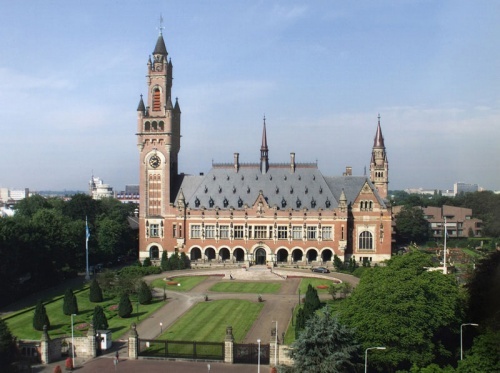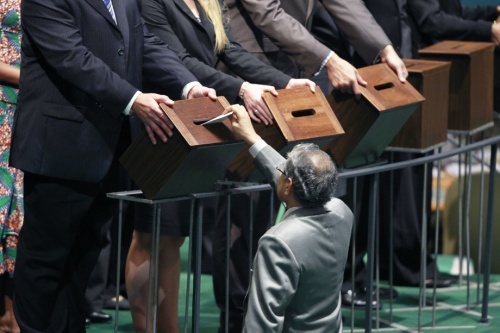

International Court of Justice has 4 of the 5 members that were to be elected concurrently by the UN Security Council and General Assembly. One more remains to be elected after a continuing deadlock. A third round of voting will be required.
The judges elected so far are:
• Giorgio Gaja,Italy
• Hisashi Owada,Japan
• Peter Tomka, Slovakia and
• Xue Hanqin, China.
The last spot has now come down to two candidates, Julia Sebutinde of Uganda and Abdul G. Koroma of Sierra Leone. In order to be elected, one of these two candidates will have to be gain an absolute majority in both the General Assembly and the Security Council.
Mr. Owada, Mr. Tomka and Ms. Xue were already serving on the court, but their current terms expire in February. Mr. Koroma has also been a judge on the ICJ. The new judges will now serve a 9-year term starting in February, 2012. The other judges’ terms in office expire in either 2015 or 2018.
Election of Judges: Qualifications or Politics:
In theory, judges are chosen on the basis of their qualifications, not their nationality, but no two judges can be from the same nationality. Effort is also taken to ensure that the principal legal systems of the world are reflected in the composition of the court. During my tenure, the candidate judges made an effort to be interviewed/see all of the voting states. It can be exhaustive. It is also not evident to what degree election might influence judge’s positions on cases, but the 9-year terms, professionalism and integrity should insure impartiality, mostly. As agent before the ICJ, I did note the tendency of some judges to side with positions consistent with their capital’s diplomatic/political views. (See Film Report – Georgia Versus Russia at ICJ – Ethnic Cleansing” -
diplomaticallyincorrect.org/films/movie/georgia-vrussia-int-court-of-justice-ethnic-cleansing/25996). The capital is effectively responsible for putting forward the candidacies and lobbying fellow UN representatives for election of the candidate. Further, the bigger states, particularly the P-5, Permanent Members of the UN Security Council tend to have their candidates elected for the ICJ.
Enforcement of Rulings/Judgments:
Established in 1945, the ICJ settles legal disputes between States and gives advisory opinions on legal questions that have been referred to it by other authorized UN organs, (READ for Example of Advisory Opinion Requested on Greenhouses Gases”
diplomaticallyincorrect.org/films/blog_post/world-court-on-responsibility-for-greenhouse-gases-damage-by-ambassador-mo/35338 ) . The ICJ’s rulings though have not been universally implemented. The Court has only limited modes of enforcement and may have to ultimately rely upon potentially sanctions or other measures effected by the UN Security Council. Unfortunately though some P-5 members have effectively ignored the rulings/judgments of the Court with no direct consequences.
Other ICJ Related Reports:
“Costa Rica v. Nicaragua” -
diplomaticallyincorrect.org/films/movie/costa-rica-v-nicaragua-international-court-of-justice/25522
“Temple Court Ruling – (Cambodia v. Thailand)” -
diplomaticallyincorrect.org/films/movie/temple-court-ruling/27840
By Ambassador Muhamed Sacirbey
Facebook-Become a Fan at “Diplomatically Incorrect”
Twitter – Follow us at DiplomaticallyX
“WarCrimesJustice” Channel -
diplomaticallyincorrect.org/c/war-crimes-justice



